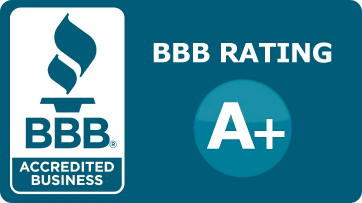Penny Wise — A cautionary tale of homeowner supplied labor & materials
What works and what doesn’t in saving money during a remodel
Saving money the hard way with the Brewsters
The Brewsters are frugal and mostly hypothetical people. Like so many of our clients, Jen and Brad are your slightly above average Minnesotans who appreciate a good deal and are not afraid to do a little extra work to get it. In the winter they shovel their own driveway, and sometimes their neighbors' too, and don’t mind spending a few more minutes on the web to hunt down coupons for a delectable such as Nuclear Nick’s Beef Jerky.
However, when it comes to saving money on remodeling, things aren’t so cut and dried as Nick’s Jerky. Any savings you think you’re getting often comes with some unforeseen issues, liabilities, and costs. So we thought we’d use our 38 years of experience and our hypothetical couple to separate those myths from the things you really can do to save time and money during your next remodel.

Look at this deal on flooring, Hon!
The Brewsters had planned for some time to replace the dated sheet vinyl in their 1990’s home. But with the recent acquisition of two new hunting dogs, Sin and Bad, the desire for new more durable, and aesthetically-pleasing flooring jumped to the “must-have” category.
Ever on the lookout for a way to save a buck, Jen found exactly what she was looking for at a local big box store.

Jen and Brad were already in talks with us to redo their kitchen when they asked if they could purchase the flooring themselves and reduce their budget—a perfectly sensible, if not common question.
We said, “Yes you can, and yes you might save a little, however consider these immutable truths…”


Won’t I save even more if I install it myself!
The next day Brad called and posed another commonly asked question. If he did the flooring install himself, how much might they save? We said, again, you could save a little more of course, but consider these risks:

“It’s a huge risk,” explains owner John Murphy, and one most homeowners really don’t want to take. After all, that’s sort of why you are hiring a professional team—so you don’t have to worry about these types of issues or spend your valuable time on such details.”
So what can you do to reduce your remodel budget?
Each remodel is a custom project to us and to the homeowner. And so we evaluate each request for homeowner purchasing and involvement individually. In many cases there are four areas where homeowners can save money either through their sweat equity labor or through someone else they trust, such as a relative.
Paint
This is the most common way for homeowners to save money on their remodel. Everyone knows how to paint. Well, they think they do anyway. Painting is usually the last or nearly the last thing to do in most projects.
Unfortunately, it is also the most common reason why these remodels take several extra months to complete, as procrastination tends to set in when homeowners realize they have to tape everything off, protect furniture and new cabinets. All too often they call us back to finish that as well.
On a typical bath project, you could save up to $600, $1,500 on a kitchen, and as much as $3,500 on several rooms on the main floor.
Demolition
Doing your own demo is probably the second most common and easiest because it normally doesn’t require a lot of skill—just your primal nature. It’s dusty, dirty, sweaty, grimy work to be sure, but you can save a thousand or two depending on the size of the project. It can also be cathartic if you have a relative, boss, or co-worker that, well, gives you reasons to swing that sledgehammer with great and relentless enthusaism.

One cautionary note; if your home is older than 1978, it may (likely does) contain lead, and so you will want to take necessary precautions if you do the demo. If we do the demo, state law requires us to test before and after and use standard lead abatement practices, typically adding $500 - $1,000 to the project cost.
If you are going to demo first, let us know so we can give you tips on how to do it right and not cause unnecessary damage along the way that will have a cost.
Final cleaning
At contract signing, we usually ask whether you would like us to do the final cleaning when the project is complete. That could be a savings of roughly $200 all the way up to $1,000 or so on very large projects. If you wish to do that yourself, we have no objections or precautions to mention. Have at it.
Appliances
Like any other material components you may wish to buy, you will own the product and would deal directly with the vendor on any warranty issues. And even though you might save some significant dollars through buying direct, if we don’t manage the install as part of the overall project, you will likely end up with an incomplete remodel with lots of extra communication and scheduling to handling yourself.
Cousin Earl
It seems there’s always a cousin Earl in the mix. He’s an electrician or a plumber, usually a family member, sometimes a neighbor. Typically, we will work with Earl as long as he is licensed, bonded, and insured, will pull his own permits, and he conforms to our schedule.

And you might save a few hundred or even a thousand or so if he is significantly discounting his labor. However, if he doesn’t perform like any other trade partner we hire and manage, and causes delays for any reason, that is your rather delicate issue to own and address with Earl directly. Good luck.
Our advice? Never hire a friend you regularly borrow tools from, and, never hire a relative you plan to see at Christmas or Thanksgiving.

Summary
In the end, your remodel is a significant investment that you will live with for years, if not decades. Any decision you make in terms of trading your time and effort for money should be carefully weighed against the overall risk of doing so and the desired outcome.
“We realize some homeowners really do need those extra savings for their project to be affordable. We appreciate that and will work with those homeowners to accommodate as much as we can while still protecting the integrity of the project. For most, however, in my 38 years of experience, the effort isn’t worth the risk or the savings,” says owner John Murphy.








